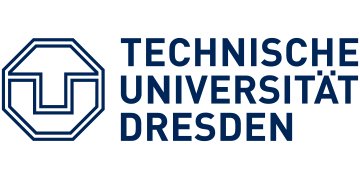International Summer School
Aims and scope
The modern world is moving more and more towards the direction of the state control over citizens, which leaves less space for free civil actions. Looking at the processes currently taking place in Russia, Poland, and Hungary, and even in the countries of mature democracies like the USA – where under the pretext of protection against terrorism, rights and freedoms of people are infringed –, the academics are drawing on the ever-gloomier prospects of the future of modern democracy. Nevertheless, even in the countries with a harsh system of state surveillance, as in today’s Russia, there is still space for individual freedom and for a rather consistent resistance to power. This space can be found by considering not only textbook approaches to political agency of citizens, the paradigmatic examples of which would be participation in elections and protest demonstrations, but also diverse opportunities of other, more local and less spectacular ways of dealing with power.
In the disciplines focusing on Eastern Europe and especially on Russia, the issue of organisations and activities “from below” is gaining more and more importance. Equally relevant in current research seems to be the historical comparison of the 2000s and 2010s with the traditions and practices of the communism era – an epoch, which anticipated the diversity of oppositional patterns today. In order to describe multifaceted, often non-confrontative practices and patterns of resistance in this area, the summer school uses a strongly interdisciplinary approach based on the concept of “Eigen-Sinn”. The term was coined by the German historians Alf Lüdtke and Thomas Lindenberger and draws on the polysemous meaning of the German expression, describing both stubbornness/obstinacy (that is, opposition to certain rules or demands), and one’s own/innate sense/meaning (that is, the creation of a meaningful attitude to life, especially in adverse political conditions). “Eigen-Sinn” is therefore considered as an appropriate historiographical concept for understanding individual behaviors and actions that impact the sphere of power and domination, submission and revolt, resistance and dropping out.
The main disciplinary fields upon which the summer school’s teaching sessions will be based are historical science (esp. everyday history), literary and cultural studies, sociology and political science. The program will be led by international scholars from Europe and beyond. It includes lectures, interactive seminars and group work on a wide array of themes, thereby casting light on the issue of soft resistance in the Soviet and post-Soviet world from various perspectives. Participants will have the opportunity to consolidate their theoretical and methodological skills, discuss concepts and ideas, present their own projects and network with international researchers.
Organisation and application
The summer school will take place at the Technische Universität Dresden; it is organized in cooperation with the Moscow School of Social and Economic Sciences.
It is open to doctoral students and postdocs from Slavic studies, East European studies, political science, (East European) history, literary and cultural studies, sociology as well as related fields and interdisciplinary contexts.
The working language will be English.
Participation, including travel to/from Dresden, accommodation and meals, will be completely funded for successful applicants subject to the condition that financial support by the Volkswagen Stiftung will be granted.
For more information click "LINK TO ORIGINAL" below.
This opportunity has expired. It was originally published here:
https://tu-dresden.de/gsw/slk/slavistik/das-institut/professuren-und-lehrbereiche/litwi/international-summer-school/?fbclid=IwAR3ulVIoViW6wlIWrPcjEjyP3osTCwx0zQF5cyrJmykKC_47G5MLye1P3EA
